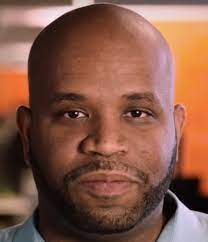Towards a Future of Self-Testing Systems
DevOps as a culture, movement and philosophy is leading to an increase in the practice of shifting testing to the right — towards production. Many organizations now use continuous integration and delivery pipelines to make decisions about production readiness and, once the software is released, leverage real-time monitoring for detecting and debugging issues. Testing in Production (TiP) has historically been the subject of great scrutiny due to its frequent association with insufficient pre-production testing. However, when applied appropriately, TiP can be a highly effective means of validation and verification. Unlike testing in a lab or staging environment, TiP provides feedback on system behavior using real user scenarios, data and configurations. Tariq King believes that the next-generation of test automation involves combining TiP with AI-driven testing techniques. In other words, the machines of the future will learn how to test by training on information gathered from real users acting in production environments. Similarly, test scenarios will be executed in production environments to provide best effort simulations. Join Tariq as he explains different approaches to TiP with AI, its key benefits and challenges, and how he envisions these technologies moving us towards a future where systems and services test themselves.
Speaker Biography:
 Tariq King is the Chief Scientist at test.ai, where he leads research and development of their core platform for AI-driven testing. Tariq has over fifteen years' experience in software engineering and testing and has formerly held positions as Head of Quality, Director of Quality Engineering, Manager of Software Engineering and Test Architect. Tariq holds Ph.D. and M.S. degrees in Computer Science from Florida International University, and a B.S. in Computer Science from Florida Tech. His areas of research are software testing, artificial intelligence, autonomic and cloud computing, model-driven engineering, and computer science education. He has published over 40 research articles in peer-reviewed IEEE and ACM journals, conferences, and workshops, and has been an international keynote speaker at leading software conferences in industry and academia.
Tariq King is the Chief Scientist at test.ai, where he leads research and development of their core platform for AI-driven testing. Tariq has over fifteen years' experience in software engineering and testing and has formerly held positions as Head of Quality, Director of Quality Engineering, Manager of Software Engineering and Test Architect. Tariq holds Ph.D. and M.S. degrees in Computer Science from Florida International University, and a B.S. in Computer Science from Florida Tech. His areas of research are software testing, artificial intelligence, autonomic and cloud computing, model-driven engineering, and computer science education. He has published over 40 research articles in peer-reviewed IEEE and ACM journals, conferences, and workshops, and has been an international keynote speaker at leading software conferences in industry and academia.


